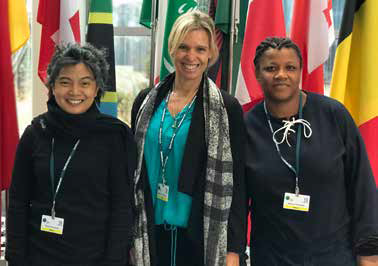
Description of the project: Co-led by WEDO and Both ENDS, this initiative strives to build capacity and knowledge to track, monitor and influence the projects and financial flows of the Green Climate Fund (GCF). With the hope of mobilizing resources and support, the initiative is funding the direct participation of feminist and women’s rights activists in the work of the GCF, supporting regional feedback channels, working with women’s funds on strategies for direct access, and hosting a webinar series to take a deep dive into important aspects of the climate financing architecture. We aim to ensure that money reaches local women’s groups and that projects are designed to respond to the needs of communities.
Climate impact: The GCF, part of the UNFCCC’s financial mechanism, was created to provide funds for developing countries to mitigate and adapt to climate change, with 50% of the funds to be distributed in support of adaptation. It aims to promote a shift to low-emission and climate-resilient development. With an initial resource mobilization of over $10 billion, the GCF has an undeniable ability to shape action. A key aim of this initiative is to orient the flow of GCF funds toward gender-just climate solutions.
Gender impact: This project has supported women activists as regional monitors. They attended the 19th, 20th, and 21st GCF Board meetings and created regional coordination groups for those interested in gender and the GCF to come together to discuss and review proposals’ gendered impacts and gender action plans, among other activities. Five webinars on women’s rights and climate finance attracted over 250 attendees, and over 800 later viewings. Both ENDS is supporting the accreditation of a women’s fund.
Scalability / replicability: This initiative can be scaled up across its multiple activities. Improving civil society’s capacity is vital to effective monitoring and/or influence, and the regional gender groups could be further coordinated through capacity-building and strategic planning meetings, translation services, and organizational
support. With additional funding, regular, translated, topic-specific webinars can be designed and delivered, and more women’s funds supported in navigating the accreditation process.